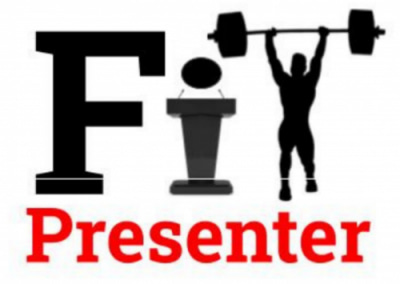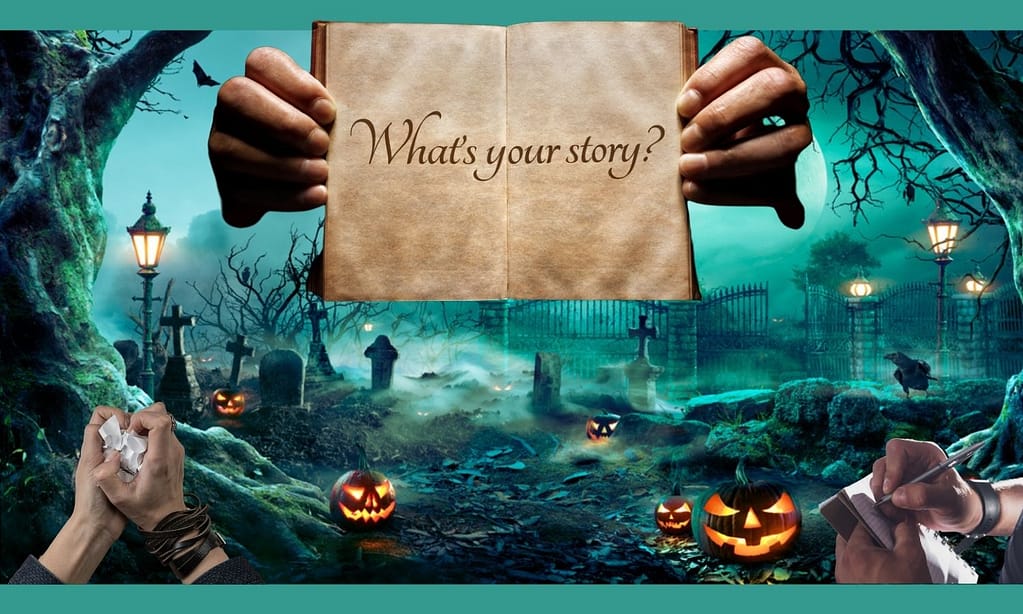Where do you keep your ideas?
By now you have gone deep enough into the FIT Presenter rabbit hole that you can consider yourself a speaker and storyteller. You want people to know what you know, and you want to inspire them.
You can envision yourself on stage blending science with stories, academics with anecdotes, and techniques with tales from on the job.
Long before you refine a message that is ready for a public venue, you need to stockpile your best and worst ideas in a notebook.
No matter how much technology advances, nothing compares to the portability, access, and tactile stimulation of a physical notebook by the bedside. It will comfort you, it will listen to you, and occasionally it will betray you.
The notebook is your lifeline for your best ideas, and a graveyard for ideas that don’t make the cut.
Ideas that look beautiful on paper will not meet the time frame, fall within the central message of your speech, or relate to your audience. Fear not. The content that you scratch will find their way into the next speech, the next lesson, or the next book.
Where is your notebook right now?
There are two places where you should always have your notebook -- in your gym bag and next to the bed. Why next to the bed? As creativity comes from the subconscious, you wake up with your dreams fresh in your mind.
I once met an advertising copy writer who always started her process at 3:00 in the morning. She set her alarm and started writing as soon as she woke up. She would force herself to fill the page before going back to sleep. A few hours later when she woke up again, she refined her ideas once she read them with fresh eyes.

As for the gym, you hopefully don’t need to have this one explained to you. People often bring their notebooks to the gym to record their reps and sets. Why not do the same for your speech ideas? Adrenaline spurs your creativity. You know that once your client starts talking gibberish then you know their adrenals have kicked in and the warm-up is over.
Once you reach that point in a workout, some wild idea will hit you that belongs on paper and in your speech.
Listen to World Champion of Public Speaking Craig Valentine describe his writing process:
School's out
When I taught the personal trainer certification course, I always told my students, “This course might be the first time that you have ever liked school.” The same goes for speech prep. Once nobody is telling you to do a book report or write an essay, writing becomes fun again.
Back in high school, we had to keep a black and white marble notebook as a journal. At least I think we were supposed to. I never did. Words should never be so confined! As I racked up zero after failing grade for not keeping my mandatory collection of free thoughts in a rigid, predictable order, I also kept a folder of loose leaf papers of random musings.

I found this old gem, an acrostic poem about the Scarlet Letter
Almost 30 years later, I still have the folder. I purged the self-centered teenage ramblings that would even make Zennials roll their eyes and I kept the rest. Perhaps some of those ideas appear in my blog -- but you’ll never know. Nobody will ever know where you got your ideas, nor will they care. They only think about how your message connects to them.
A graveyard of ideas
As a speaking coach, I also serve as a bereavement counselor for ideas that die on the page. It is hard to part with an idea once you labor so hard to put it on paper. Just remember that bad ideas make the good ideas great. The more that you delete your words twice as quickly as you write them, the more you will appreciate the editing process.

Imagine if you had the same luxury with your spoken words. So many times I have wished that I could say something, look at my words suspended in air in a comic strip word balloon, and then decide what words to keep before casting a spell to send them. On paper, you can write your wildest opinions, harshest criticisms, and most pointless ideas before erasing them, never to be seen again. You will never come up with a good idea without 10 bad ones.
The resurrection
Think of the movie the Karate Kid. How does it end? Daniel assaults Johnny with an illegal kick to the face, embraces Johnny’s ex-girlfriend, and then Johnny gracefully hands Daniel his trophy. Did you know that the book ends in the parking lot?
Kreese breaks a couple of windows with his fists in pursuit of the elusive Mr. Miyagi, and then the Cobra Kai kids lay their belts at Kreese’s feet. We didn’t see that ending to the first movie for two reasons. One, the movie ends on a crescendo if they end it with Daniel celebrating his tainted victory, and two, the movie producers knew that they could always put that scene in … the sequel!

Many of the ideas that you erase will come back from the dead.
When you eliminate an anecdote due to time constraints, you now have the basis for your next story. Everything that you edit out can be put into the next story, the next speech, or the next book.
What is your process?
The most mind-numbing way to write your ideas is to sit and type until it's finished. That's fine for a token homework assignment, but not when you are baring your soul to an audience. Every writer has a unique process. Finding your process is a process. Keep practicing until you discover yours. My process goes as follows:
Pace around my living room and talk to myself
Write a few lines in the little notebook, label the story
Write out the story longhand in a spiral notebook
Talk to the wall, pretend there's a real audience
Type the full draft, which will get a complete makeover anyway
There will come a time to transfer your ideas to a word processing document, but not until you have a personal physical connection with the text. I can assure you that I put these ideas and most of the words on paper before typing them into this article. The words you deliver to an audience mean a lot more to you and capture a lot more emotion if you physically write them into a notebook first. So enjoy this digital diversion for about ten more words, then pick up a pen and paper and get started!
















